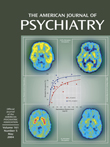Hepatotoxicity Related to Citalopram
Mr. A, a 44-year-old man, was given a prescription for 100 mg/day of hydroxycine hydrochloride, 2 mg/day of clonazepam, and 20 mg/day of citalopram for depression. Two years earlier, he did well during 6 months of fluoxetine treatment; the results of prior liver function tests were normal. After 8 weeks of treatment, he was seen by us because of 7 days of asthenia and weight loss. He reported no use of alcohol, any other drugs, or herbal remedies and had received no blood transfusions.The results of a physical examination were normal. His level of aspartate aminotransferase was 277 IU/liter (normal <30), and his alanine aminotransferase level was 1078 IU/liter (normal <36). His bilirubin and alkaline phosphatase levels were normal, as was his eosinophil count. Serology tests ruled out viral causes. Screening for autoantibodies produced negative results, and the results of an abdominal ultrasonographic examination were normal. Treatment with citalopram was stopped while other treatments were maintained intermittently. Five days after drug withdrawal, Mr. A’s alanine aminotransferase level fell more than 50%, and a complete return to normal was seen within 2 months.
References
Information & Authors
Information
Published In
History
Authors
Metrics & Citations
Metrics
Citations
Export Citations
If you have the appropriate software installed, you can download article citation data to the citation manager of your choice. Simply select your manager software from the list below and click Download.
For more information or tips please see 'Downloading to a citation manager' in the Help menu.
View Options
View options
PDF/EPUB
View PDF/EPUBGet Access
Login options
Already a subscriber? Access your subscription through your login credentials or your institution for full access to this article.
Personal login Institutional Login Open Athens loginNot a subscriber?
PsychiatryOnline subscription options offer access to the DSM-5-TR® library, books, journals, CME, and patient resources. This all-in-one virtual library provides psychiatrists and mental health professionals with key resources for diagnosis, treatment, research, and professional development.
Need more help? PsychiatryOnline Customer Service may be reached by emailing [email protected] or by calling 800-368-5777 (in the U.S.) or 703-907-7322 (outside the U.S.).

